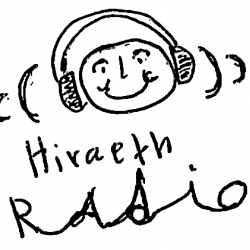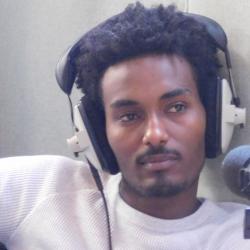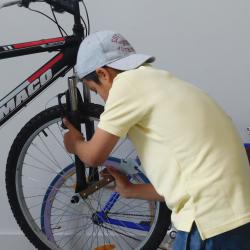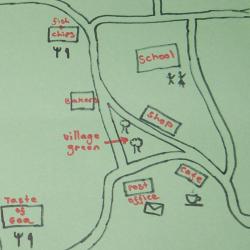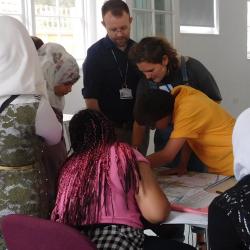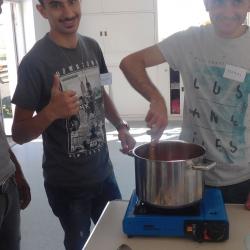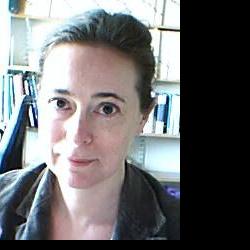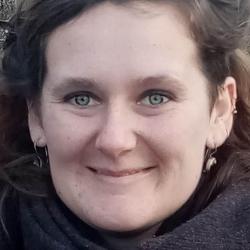AHIS Fund award; Rayne Foundation award
2019 – 2020
‘Hiraeth’ is a summer programme for unaccompanied asylum-seeking adolescents in Cambridgeshire. Through a series of workshops and a participant-led radio programme, it aims to improve their social capital and skills (e.g. English proficiency and communication, cookery, bike repair, mapping of their new home environment), leading to reduced social isolation and better mental health. In 2019, the project also allowed Cambridge University researchers to evaluate the usefulness of tools developed to support refugee children, to build a network with third sector partners, and to raise public awareness of the issues refugee children face, through radio and TV broadcasts, and a museum exhibition. The programme is taking place again - though online - in 2020.
Project Aims
The project’s aims are three-fold:
- for the refugees: increase social capital & networks leading to reduced social isolation and improved conditions for good mental health; improve English confidence and proficiency; develop practical skills relevant to life in Cambridgeshire (cookery, bike repair, mapping of their new home environment, and communication skills, including interviewing)
- for the TAL researchers: evaluation of the effectiveness and potential impact of the MyRef research project’s main outcomes (https://sardes.nl/myref), a framework and toolkit with training materials for volunteers and practitioners working with asylum seeking children
- for all project partners: a valuable opportunity to build sustainable connections between a network of government organisations, researchers, NGOs, and other Education and Care providers for refugee children, with an eye to developing future projects; increase public engagement with refugee childrens’ perceptions of self, displacement, and their education and integration.
Description
Hiraeth is a summer programme for unaccompanied asylum-seeking adolescents and refugee children in Cambridge and Peterborough with the aim to provide
a space for free self-expression, self-narration and self-curation. Through a series of arts workshops running in conjunction with a participant-led radio programme, the summer programme enabled discussion and sharing of experiences, thoughts, questions and feelings around the themes of ‘home’ and ‘belonging’, as well as the development of various practical skills (including proficiency in English). The radio programme, broadcast by Cambridge Radio 105 (podcasts at www.hiraethproject.weebly.com) further provided an opportunity for continual, embedded evaluation of the workshops’ impact and develop participants’ confidence in speaking English.
The radio programme also aimed to increase public engagement, as did the museum exhibition Hiraeth: The voices of young refugees and asylum seekers in Cambridgeshire (Museum of Cambridge, 4 Nov - 16 December 2019), which was covered on the local TV channel That’s Cambridge (https://www.youtube.com/watch?v=FW40uxmk_FM), and coverage given by the University’s External Communications team (https://www.cam.ac.uk/nowwearetalking).
A very successful ‘Closing Event’, attended by representatives from the City and County Councils, participants and their guests, various community groups (Cambridge 105, CRRC, Oblique Arts, the Museum of Cambridge), and the University of Cambridge’s External Communications team allowed us to further evaluate the impact of the project and to further develop connections between a network of government organisations, researchers, NGOs, and for refugee children.
The project members were also invited to present at 4 international conferences which many of these stakeholders attended. The collaboration between Cambridge Hub and the MMLL MyRef research team also provided a valuable opportunity to evaluate and improve the MyRef toolkit. Four volunteers were trained using the toolkit, and gave detailed feedback to the toolkit’s developers both before and after their involvement with the project. The Council officer responsible for UASC in Cambridgeshire also gave us his feedback, and subsequently proposed a new collaborative project to adapt and extend the toolkit specifically for use with Education and Care providers for adolescent refugee children in the UK, involving professionals in Cambridgeshire who are working with this group (funding application to be submitted this autumn.
People
Project holders:
Brechtje Post (PI, TAL/MMLL)
Ianthi Tsimpli (CI, TAL/MMLL)
Eleanor Chapman (CI) for Cambridge Hub
Project partners:
John Jordan-Hills for Cambridge County Council’s Virtual School for Looked-After Children
Cambridge Refugee Resettlement Campaign
MyRef Erasmus+ funded research team (including Post and Ianthi)
Associated Outputs and Events
- The exhibition Hiraeth: The voices of young refugees and asylum seekers in Cambridgeshire, Museum of Cambridge (4 Nov – 16 Dec 2019).
- Coverage by local TV channel That’s Cambridge at https://www.youtube.com/watch?v=FW40uxmk_FM).
- Coverage by the University’s External Communications team Now we’re talking. Helping young refugees and asylum-seekers build a new life in Britain. Tom Almeroth-Williams, University of Cambridge, autumn 2019. Published at https://www.cam.ac.uk/nowwearetalking
- Hiraeth broadcasts on Cambridge Radio 105 (3 episodes in Nov-Dec 2019), published as podcasts on www.hiraethproject.weebly.com.
- Language Sciences web page https://www.languagesciences.cam.ac.uk/policy/refugee-access-to-early-childhood-education-and-care-in-the-uk.
- Hiraeth at the Early Childhood Education and Care for Refugee Children, MyRef closing conference, https://conference.issa.nl/node/162, June 2019.
- Invitations to conferences: The East of England Strategic Migration Partnership (March 2020); Children on the Move Symposium (also March ; http://fass.open.ac.uk/psychology/events/international-symposium-children-move); International Mobility, Migration and Wellbeing Conference & Workshop (RENTRE-2) (Dec 2019; https://uploads.strikinglycdn.com/files/18c18eb8-4432-4db5-b571-795195d440b7/Conference%20Program.pdf).
- MyREF: Multilingual Early Childhood Education and Care for Young Refugee Children - quality indicators for working with pre-school refugee children published at https://sardes.nl/myref, June 2019.
- MyREF Training packages (online resource for ECEC volunteers and professionals working with pre-school refugee children) published at https://sardes.nl/myref, June 2019.

